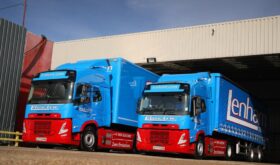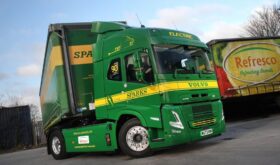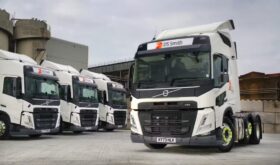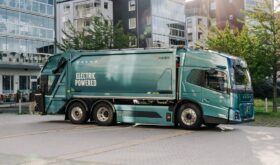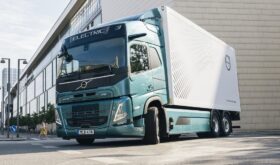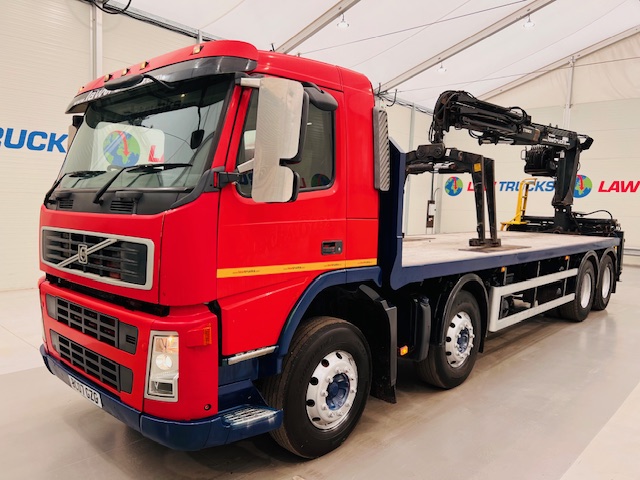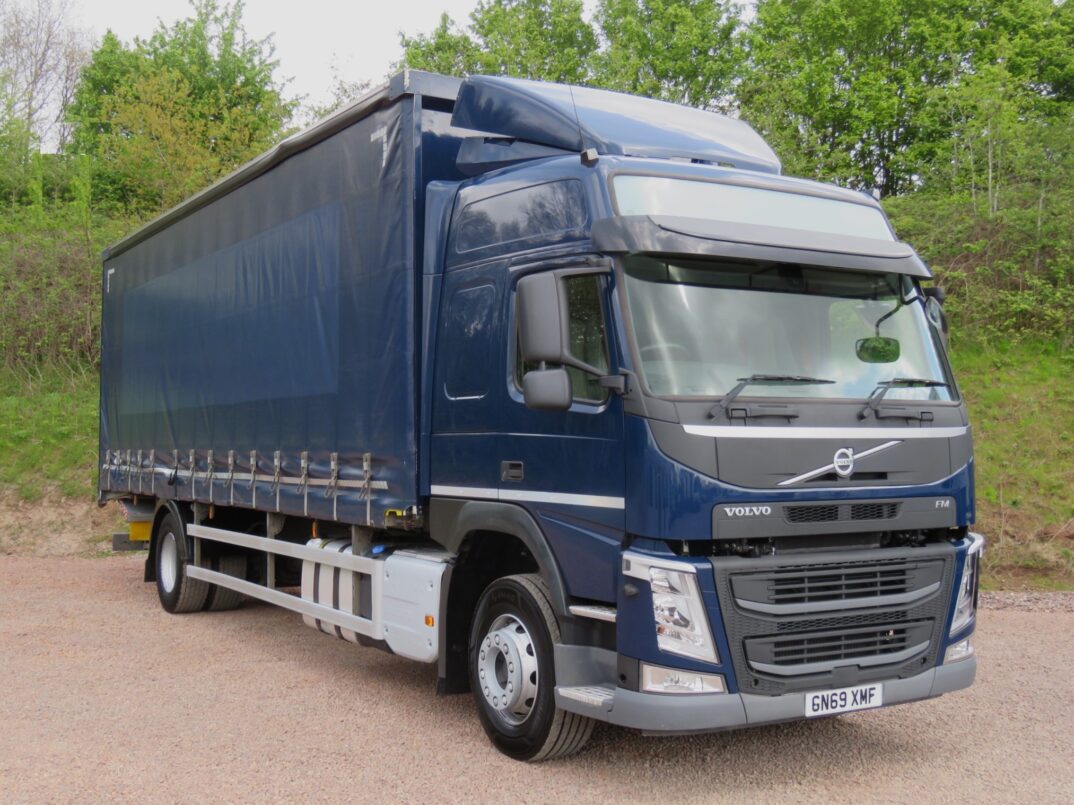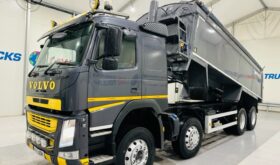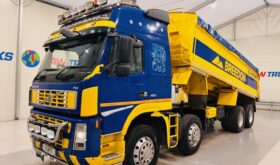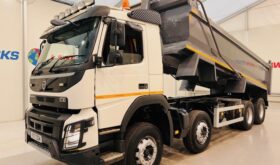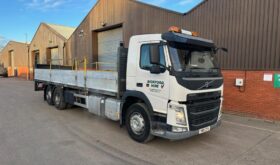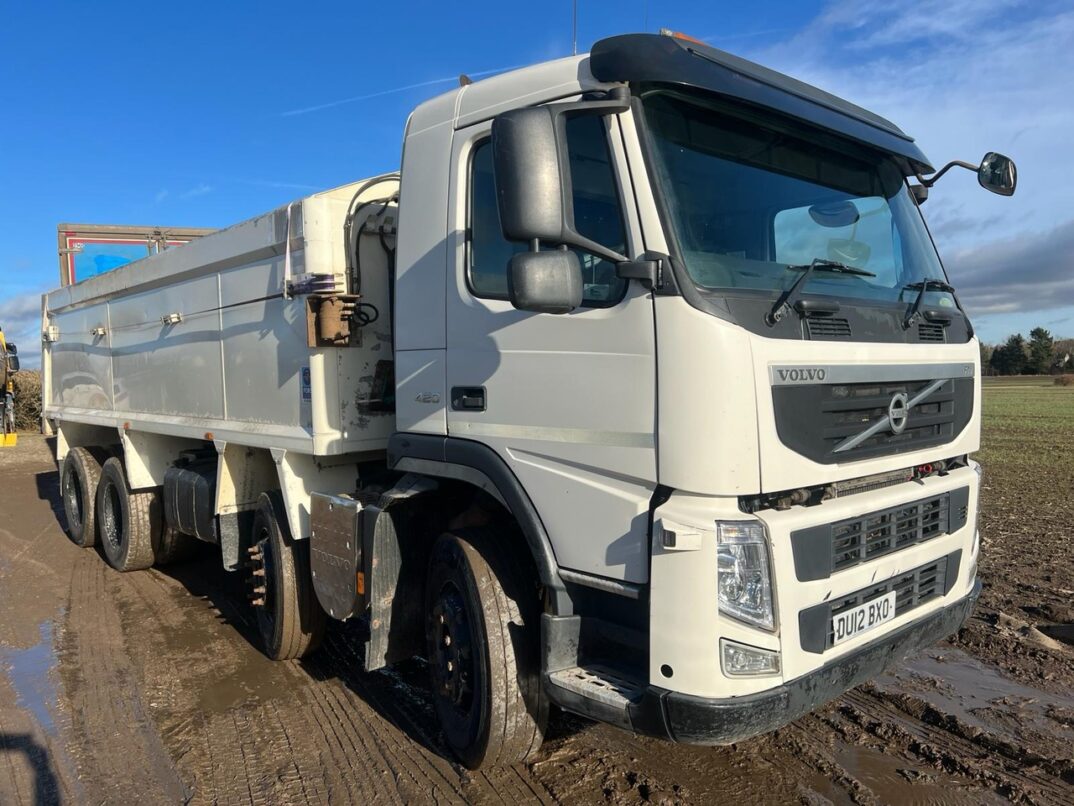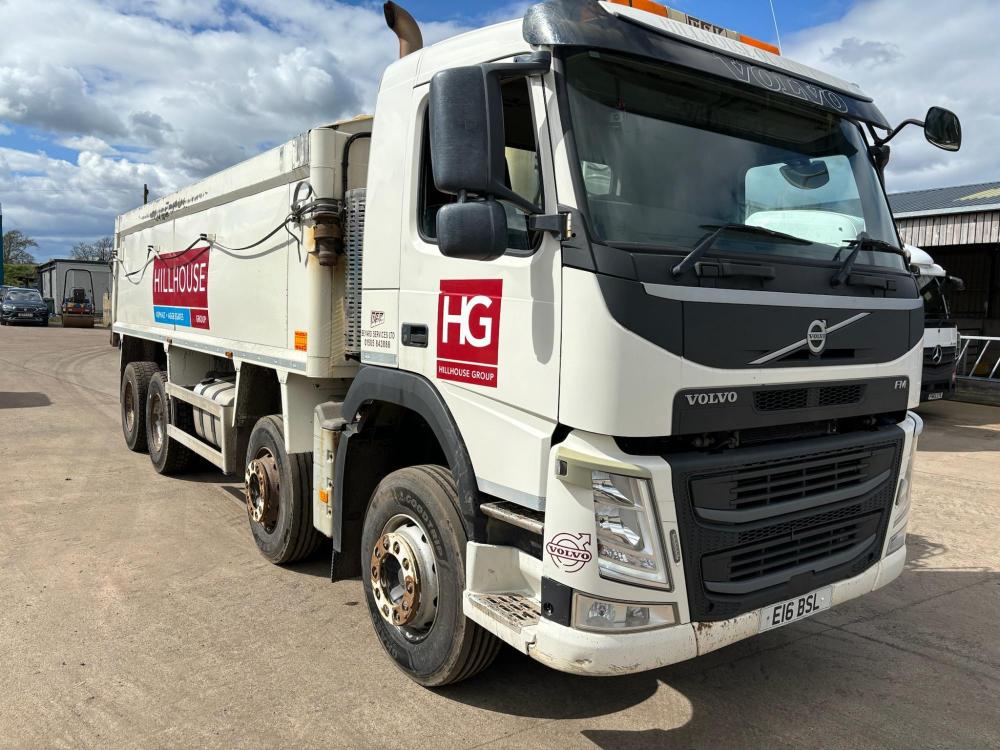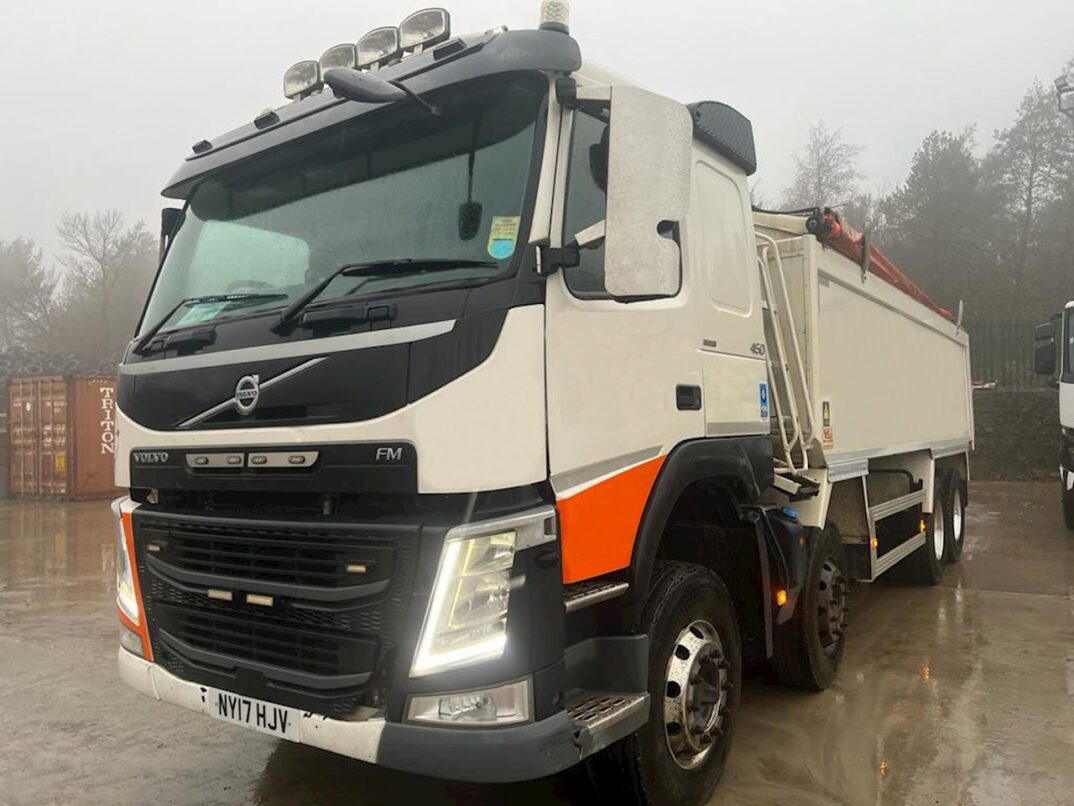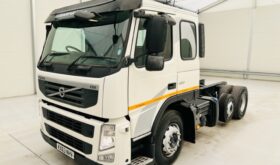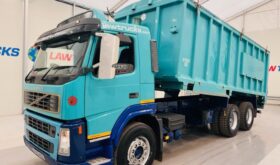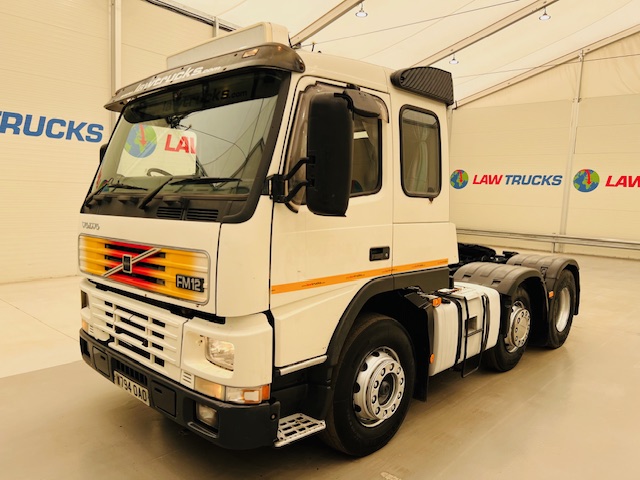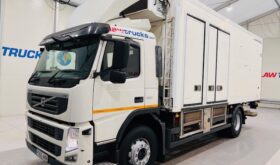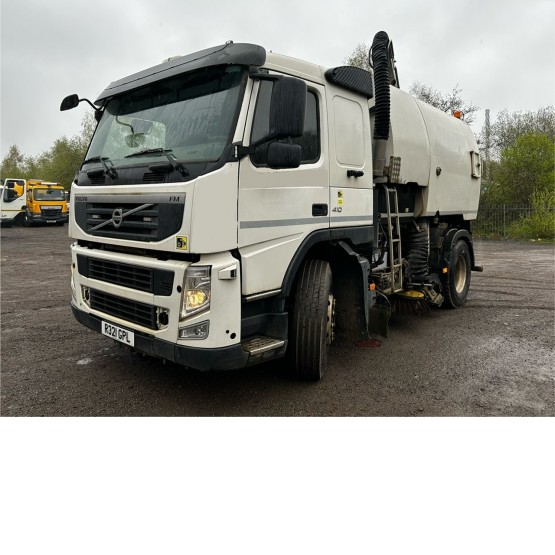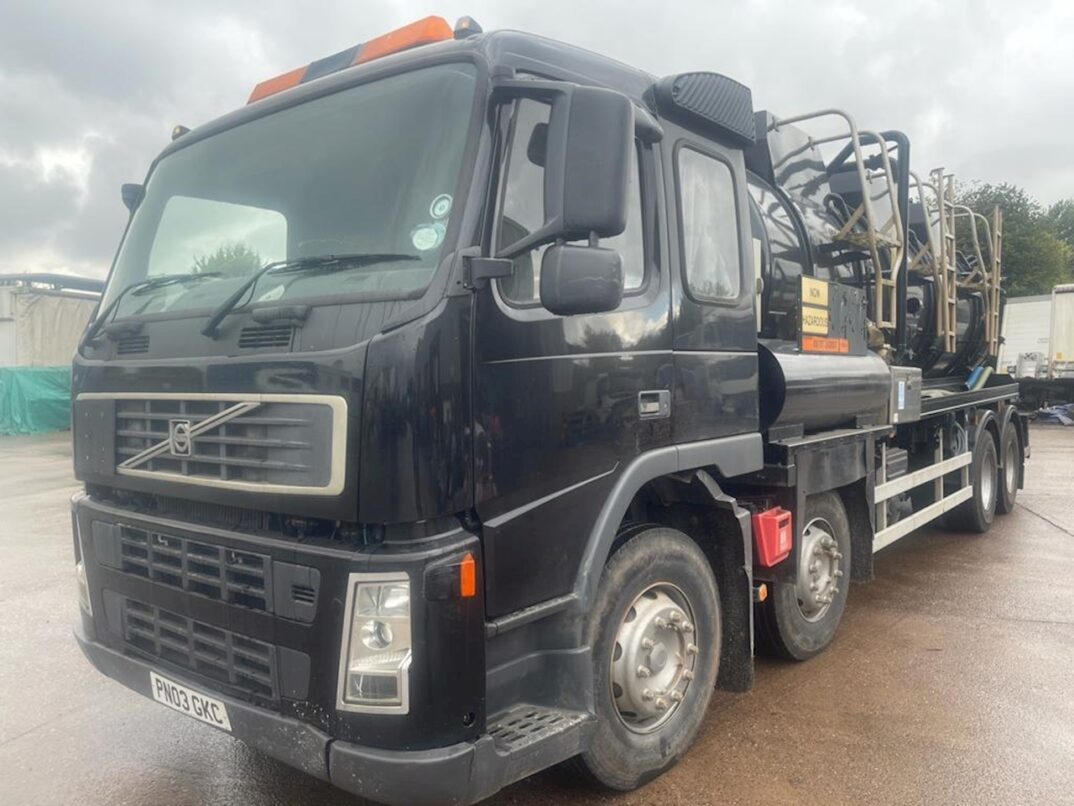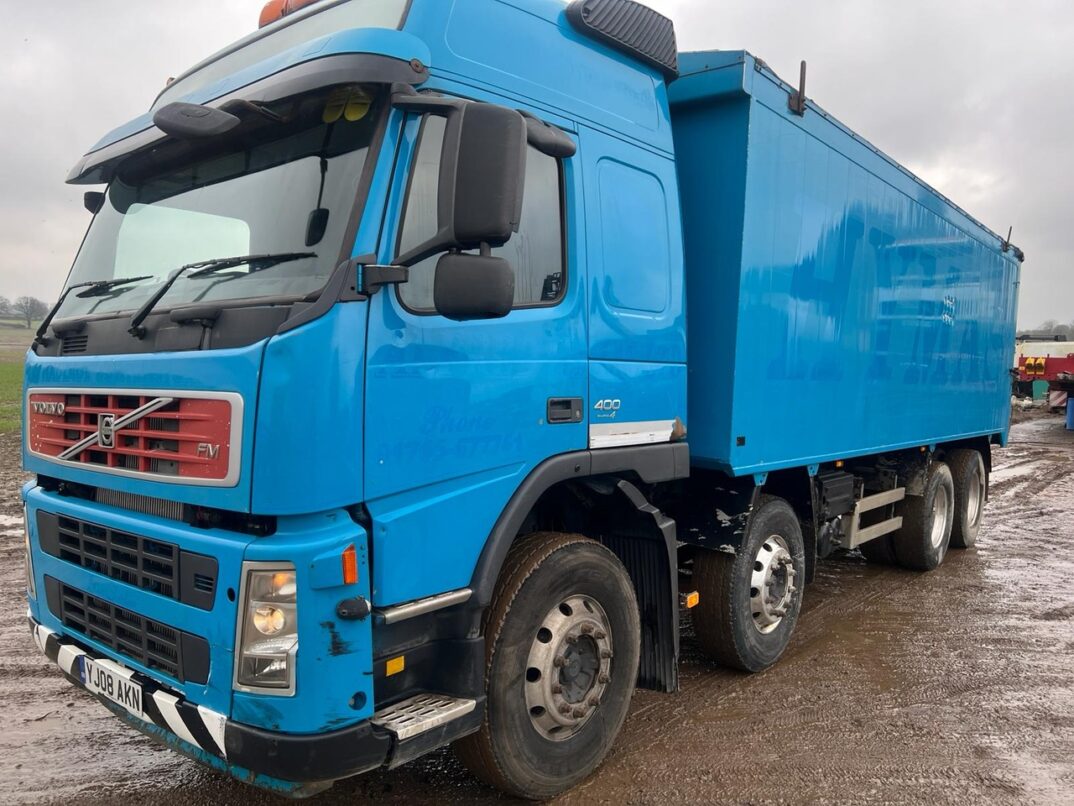Volvo FM Trucks for Sale (99)
The smaller sibling of the Volvo FH, the FM shares much of the underpinnings of the larger brother, but fitted with a smaller cab for lightness and accessibility for shorter distances and multi drop work. The Volvo FM is a popular truck in the UK for tipping work, configured as a day cab 8×4 eight wheeler, although since the introduction of the construction specialist FMX model, the FM tipper has tended towards the lighter end of the tipping spectrum. No stranger to distribution work, many FM rigids are seen in urban environments – usually in supermarket livery. Many truck buyers use the model FM13 for these trucks – this was never a model made by Volvo – when the 13-litre was introduced they dropped the first numbers and just used the power in HP. So instead of an FM13.440 it is an FM440.
More Volvo FM Trucks Info
Volvo FM Truck Information
Introduced as recently as 1998, the FM was launched by Volvo to appeal to operators where the FH cab is too high and heavy for their operation. Typically high payload, local distribution, such as fuel tanker and tipper work fall squarely into these categories.
The model stands for Forward control Medium height cab, (compared to the Forward control High cab of the FH.

Volvo FM Timeline
1998 – A completely new truck range launched
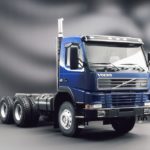
A totally new model series is big news for a truck operator, even if the underpinnings are largely the same as the FH model.
From launch the FM was available with three different sizes of engines – the ageing 7-litre D7 from 250 to 290HP, the D10B with power outputs from 320 to 360HP and the more modern D12C with horsepower ranges from 380 to 420HP.
As there was such a choice of engines, Volvo used the swept volume of the engine as part of the model – so the 7-litre rated at 250HP was the FM7.250, for example. There was also the FM10 and the FM12.
2001 – Facelift for the FM Series
Only three years after launch, the FM was given an overhaul in the engine department. The range went from a choice of three engines to a choice of two. This was a positive step, as the ageing 7 and 10 litre engines were replaced by the ultra-modern 9-litre D9A. In addition, Volvo introduced the I-Shift automated gearbox which appeared in the FM at the same time as the FH.
The new 9-litre used the same design principles as the already successful 12-litre. The old pushrods were replaced by overhead camshaft and four valve heads. These new 9-litre FMs were available in power outputs from 300 to 380HP

2003 – FM12 gets more power
The D12D in the FM12 was given more power – now with 460HP (Compared to the 500HP launched at the same time for the FH using the same engine).
2005 – FM Range Changes Name
Alongside a revamp and the replacement of the D12 with a new 13-litre D13A engine, Volvo decided to change the naming protocol for all their trucks. The FM was no exception with the company dropping the swept volume from the model. So the FM9 and FM12 changed to simply FM, (not FM13 which many operators and dealers insist on calling them).
As far as the emission standards went, both the 9-litre and the 13-litre were available at Euro 4 (Euro IV) using SCR to clean up the emissions.
The I-Shift automated transmission also got an overhaul as the second generation was launched.
Available models were the FM360, FM400, FM440 and the FM480.
2007 – EGR Version of the 13-litre FM launched
To compete with MAN and their ‘Add Nothing’ campaign at Euro 4, Volvo launched an EGR version of the FM that required no Adblue to meet the Euro 4 legislation. This D13B engine was available alongside the existing SCR models, albeit at lower rated horsepower from 360to 440HP.
2010 – Facelift Time for the FM
With revised styling and changes to the engine lineup, the 2010 changes took place alongside the launch of the FMX – the heavy duty construction version of the FM cab.

2013 – Euro 6 launch for FM
The second facelift for the FM in three years was more major, as it formed part of the range renewal prompted by the introduction of Euro 6. The FH was the first to receive the treatment with the FM coming along a year later.
The Volvo FM Launch Video 2013
The FM received some new electronic gadgets, such as the Volvo Dynamic Steering (optional) plus some changes to the chassis including new engine mountings and improved suspension. The FM also went on a diet as Volvo managed to strip some weight across all models in the range. The FM’s full range of 11- and 13-litre engines were available from the Euro 6 launch. The D13 was available from 420hp to 500hp, while the D11 engine spanned the power range from 330hp to 450hp.
2020 A Brand New Cab and Many Upgrades
Not on the roads until the end of 2020, February 2020 saw the reveal of the long-awaited new cab for the FM. Only slightly larger than the outgoing FM cab, the new version gives the driver much more room in the cab – both in day and sleeper forms.

New technology was the other major focus of the upgrade in 2020 – which formed part of a range review including the FMX, FH and FH16. The technology was less about the driveline – although savings of up to 6% were quoted when using the I-Save functions and more about the driver technology.
There were technological improvements in the displays – gone are the old-fashioned dials which were replaced by flat screens (a 12inch to replace driving dials and a 9 inch to control cameras, music and sat nav). Plenty of safety tech for the new FM including a smarter version of the adaptive cruise control that can not stop the truck totally when following traffic that stops.
The 2020 Model Volvo FM Launch Video
Latest Volvo FM Trucks News
New Volvo FM Electrics Suit M25 Deliveries
South-East based Lenham Storage has put its first zero-tailpipe emission trucks into operation, having taken delivery of two new Volvo FM Electric 4x2 tractor units. The addition of the electric trucks marks the next step on the road for the forward-thinking, family-owned business’ sustainability drive. Supplied by Steve Moon, Truck Sales Director at MC Truck & Bus, the new additions join the fleet following a successful trial with a demonstrator vehicle, which highlighted how electric-powered trucks could fit seamlessly into Lenham Storage’s operations in and around London. Andrew Fulcher, Transport Operations Director at Lenham Storage, says: “As a business, we…
Sparks Transport goes Electric with Volvo FM
It is a solid start – an operator with a 93-strong truck fleet has taken the plunge and invested in an electric tractor unit – a 666hp Volvo FM electric. Sensibly, the operator, Glastonbury-based business Sparks Transport took a look at their operations in conjunction with the Volvo Truck dealer, Truck and Bus Wales and West. As a result, they pinpointed a small section of their routes that could cope with the issues associated with electric truck operation. Next on the list was to put an electric demonstrator on the routes to see if the theory was correct. After the…
Entire Fleet Replacement in Volvo Trucks Coup
You have to be confident in your procurement process to replace a fleet of 61 trucks of one marque with a totally different one in one fell swoop. That’s what DS Smith Logistics has done in taking delivery of 61 new Volvo FM 460 Globetrotter 6x2 tractor units. The new trucks – that arrive via a long-term contract-hire agreement from TIP Group – replace vehicles from a rival manufacturer in the paper, packaging and recycling business’ busy operation. Demonstrator Truck Vital in Procurement Process Volvo Trucks secured the order on the back of the strong performance of a demonstrator that…
First Electric-Only Truck from Volvo Trucks
There are a number of electric-only start ups that have come and gone from the electric commercial vehicle market – first was Modec which disappeared in 2011 and Volta, which has only recently been saved from bankruptcy thanks to a deal with Luxor Capital. Others remain on the scene such as Tevva and Electra, the latter using chassis from mainstream truck makers. What is big news is that a major truck manufacturer has launched a truck range in battery electric only – there is no comparative diesel version available. What Volvo Trucks have done with their new Volvo FM Low…
Update & Facelift for Volvo FM Range
After the news that the Volvo FH is receiving a significant facelift in the shape of the Aero versions, Volvo Trucks have released details about the changes to their range of FM and FMX trucks. Both variants are being upgraded with new technologies and the latest in camera monitoring for even better efficiency, safety and productivity. Revised Logos The heavy-duty range exterior is also getting a mild refresh with a bold Volvo Iron Mark – the biggest ever on a Volvo Truck in modern times. The upgraded Volvo models will go into production during the first half of 2024 and…
Sleeper Cab - I Shift Automatic Gearbox - Air Conditioning - Near Side Audible Lane Change - Near Side Vision Window - 6.5m Wheel Base - Rear Air Suspension - Fitted 27ft 4" (8.33m) Long x 8ft 1.1/2" (2.47m) High...
Sleeper Cab - I Shift Automatic Gearbox - Leather Seats - Integrated Satellite Navigation & Phone System - Air Conditioning - Fridge - Near Side Camera - Near Side Audible Lane Change - 6.1m Wheel Base - Fitted 30ft 5" (9.27m) Long x 7ft...
� -
*DONCASTER* HIGH ROOF SLEEPER, A/C, STOCKS 8400 BODY (READING ZERO HOURS) REAR VIEW CAMERA MoT: 2024-10-31* Price is Plus VAT * Reg No: S12CPJ * No. of former keepers: 1 * Seller: direct company*...

